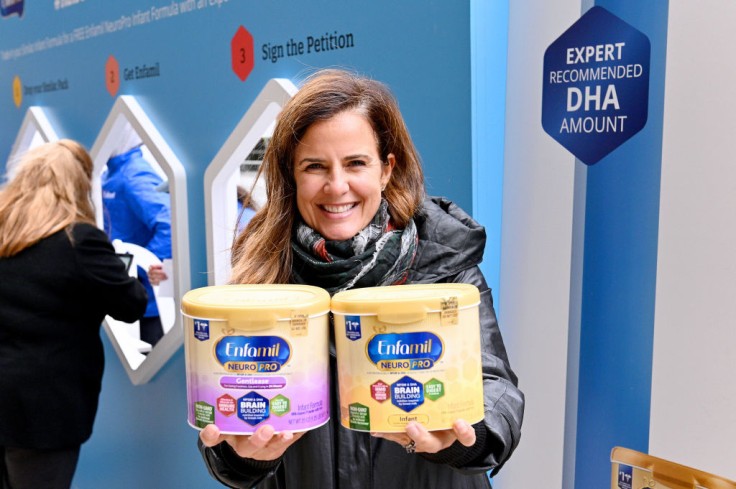
The baby formula crisis in the United States has boosted profits at Britain's Reckitt Benckiser, helping the company grab the top spot in a $5.8 billion-a-year market. The challenge now for Reckitt will be to stay there with Abbott determined to reclaim its place at the top.
The British consumer goods company has ramped up production of its popular Enfamil formula since American rival Abbott Laboratories recalled dozens of products in the United States back in February after customers complained of babies contracting bacterial infections.
Reckitt, which boosted formula production by 30 percent, told Reuters last week it now accounted for more than 50 percent of total baby formula supply in United States, up from around a third before the crisis started.
Reckitt looking to hold on to customers it gained during baby formula crisis
That is a big deal as parents tend not to switch brands their infants like. A Reckitt spokesperson said the company hopes to hold on to customers it has gained while products of Abbott, such as Similac, are off the shelves.
Reckitt announced this week that it was feeding 211,000 more babies than before Abbott's recall. The stakes are high for Reckitt as it has reportedly long been interested in selling its formula business with the company looking to focus on its higher margin household and consumer brands that range from Durex condoms to Dettol disinfectants.
According to a Wall Street Journal report on Friday, May 27, Reckitt was making a renewed sale attempt for its formula business which could fetch around $7 billion. The boost from the crisis may not last long, though, for Reckitt with the U.S. Food and Drug Administration (FDA) announcing on May 19 that Abbott was on track to reopen its key baby formula facility in Sturgis, Michigan within one or two weeks.
FDA Commissioner Robert Califf made it clear a week later to lawmakers, though, that it would take until July before store shelves across the United States were filled. While Abbott's recall has presented an opportunity for other companies, such as Neocate maker Danone and Gerber maker Nestle, it is Reckitt that is benefitting the most, as it was already second to Abbott before the crisis struck.
Read Also: Operation Fly Formula: Baby Milk to be Flown in The US through Military Contracted Planes
Reckitt's stock rising with baby formula shortage showing no signs of ceasing
Barclays raised its 2022 organic sales forecast for Reckitt on April 1 to 4.4 percent from 4.0 percent, including an uplift to 7.4 percent from 5.0 percent at its nutrition division, which includes baby formula.
Less than five weeks later, Barclays hiked its forecasts again to 6.0 percent for Reckitt and 12.4 percent for the nutrition division. According to Refinitiv, analysts have raised on average their full-year earnings forecast for Reckitt by 4.35 percent in the past 30 days, to about 311 pence per share.
Barclays analyst Iain Simpson said that near term, the biggest financial impact is going to be on Reckitt. He added that the big question now is how much of the recent market share gains Reckitt holds on to once Abbott is back on shelf. According to Capital.com, Reckitt currently sells at close to £62.